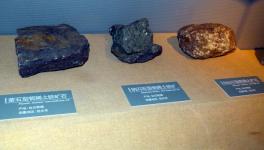Capitalism in Action: the Case of BP's Oil Spill
On the 22 of April, ironically being observed world over as Earth Day, the Deepwater Horizon rig drilling in Gulf of Mexico, blew up killing 11 workers and creating one of the worst oil spills in history. The oil well being drilled off the coast of Louisiana was owned British Petroleum (BP). The well which has been temporarily capped now, spilled an estimated 5-9 million barrels or an equivalent of one Exxon Valdez every 3-5 days. Exxon Valdez was the tanker, which had sunk off the Alaskan coast in 1989 and is held as the benchmark on oil spills in the oceans. The only other oil spill in open seas that is bigger than Deepwater was the one in Persian Gulf during the Iraq War.The record of Big Oil on spills have been dismal – from Nigeria to Ecuador – oil spill has been more the norm than the exception. The problem this time is that it cannot be hidden from the “public” as this time it affects the US public and not a third world country. Shell in Nigeria spills in one year as much as spilled in the Exxon Valdez tanker disaster. In 25 years in Ecuador, Texaco spilled about one and half Exxon Valdez every year. All this has gone “unnoticed”, the oil spills become disasters only if Alaska or Louisiana beaches are oil logged. But disaster is what Big Oil lives with, not because it has to but because it always puts profits before safety and people, In the Deepwater rig blow out, BP was paying a half million per day for the rig and wanted to move it to another location quickly to save this money. They went against the recommendations of their own engineers and their contractors in this hurry. Check this – saving half a million per day against the profits BP was making – in the last quarter alone, it made more than $6.1 billion in profits. The record of Big Oil is matched by that of the governments. In the US, despite known danger of oil spills, there was virtually no regulatory oversight in deep sea drilling. The companies were supposed to regulate themselves, very much in the mode of the press in India. The result is not very different from paid news being served up as real news. The oil companies routinely run equipment to failure giving preventive maintenance and all other such practices the go-by. From Alaska to Nigeria, from BP to Shell, the results are there for all to see. Not only was all oversight left to the oil companies themselves, even the liability from any accident capped under the Bush administration was capped to only 75 million dollars from any off-shore drilling. Contrast this figure to the amount that companies such as BP are making – more than 25 billion dollars in profits for the international oil majors. Incidentally, this is on par with what the Indian Government is now proposing for nuclear operators – for a plant costing billions, the liability cap for the operators will only be 110 million dollars. This is what capitalism has always been all about – privatising huge profits, while people pay with their lives or livelihood for accidents. And in this, Governments – big or small – or hand in gloves with private capital. Turning to the Deepwater Horizon well spill. One of the key issues today is that the era of easy oil is over, at least for private oil majors. Companies such as BP, Shell, Texaco, Aramco, etc., are no longer able to access easily oil resources. Most of the West Asian oil fields are owned by state owned companies and they are facing competition from China and even India in the newer oil finds in different parts of the world. While Shell and Texaco continue to ravage Nigeria and Ecuador, increasingly, their depredations are restricted now to only a few countries. That is why they have turned to what is termed by Michael Clare to “tough oil” – oil in deep waters or in the extremely low temperature in Alaska. Tough oil comes at a price – it is far more challenging a task to drill for oil one to two kilometres under water and a further 5-10 kilometres in the mud and sediment of the ocean floor. The pressures are enormous – a column of water and sediment of 6 -10 kilometres can easily crush equipment and buckle steel plates. The temperatures at bottom of the ocean is near freezing, while deep under the ocean floor, the temperatures are as high as 250 Degrees C. Most of the oil at these temperatures are in gaseous form and that is one of the problems. They can shoot up as a giant methane bubble as happened in Deepwater or become a solid mass once it encounters the cold temperatures of the ocean. Either way, the problems of going deep under the sea has major technological problems The problems are further compounded by the fact that no vehicle carrying human beings can operate at these pressures: we would just implode. Every bit of the work is done remotely – using robots or computer controlled equipment. On top of this is the rig, costing more than half a billion and as large as the Titanic. It must always manoeuvre to stay stationary over the spot which is being drilled – despite typhoons and hurricanes. This is one hugely complex system, for which every part must work for disasters not to happen. It is not a system which works if you play with safety. Nor can such systems be left to the mercy of the operators themselves, as the US Government decided. The Deepwater Horizon blow out was the result of a complex series of events. There were reports of leaking valves, problems with well control, the design of the final safety system – the blow-out preventer. The US House Committee investigating the blow-out in a statement made in June, noted that in a number of cases leading up to the explosion, BP chose riskier procedures to save time or money, sometimes against the advice of its staff or contractors. BP's partner in the oil field, Anadarko Petroleum Corporation, said ".. BP operated unsafely and failed to monitor and react to several critical warning signs during the drilling. ... BP's behavior and actions likely represent gross negligence or willful misconduct.” The net result was that a bubble of methane rose up the riser that connected the well to the drilling platform, exploded destroying the rig and the riser. BP's initial reaction, backed by the Obama administration was to reassure everybody that there was no leak. When tell tale signs of oil slick appeared, they kept on reassuring the public that it was a small leak – of 1,000 barrels a day. This was revised six times, each time after independent estimates made clear that the spill was much bigger than being officially stated. The current figures officially released by the US Coastguards is about 60,000 barrels a day, while internal BP documents show that the spill could be as high as 100,000 barrels a day. Though the well has been temporarily capped, this is only a temporary measure pending drilling a relief well, expected to be operational by August. The damage however to the coastline and to marine life is enormous. Reports indicate that a methane pool has accumulated creating a huge dead zone. Meanwhile, BP has pumped huge amounts of chemicals in attempt to disperse the oil. These chemicals also have long term effects – they are toxic and could stay in the food chain for a long time. Probably, about half the spilt oil has been mopped up – through pumping back into barges some of the spilt oil, burning and dispersing through the chemicals, etc. The rest will stay in the sea as a long term issue plaguing the Gulf and the coastline for decades. The clean-up can only address a part of the problem, leaving mother nature to take care of the rest. The Obma administration has missed major opportunities in orienting the debate on regulations and on energy. Though, Obama did come down on BP and Democrats have proposed legislation that will force BP pay compensation beyond 75 million dollar cap retrospectively, nevertheless, the administration collaborated with BP in first tamping down on all information flows on the disaster and later helping BP hide the damage of the oil spill. All journalists have been barred from spill areas on the specious plea that it will make BP's task of controlling the spill more difficult. The energy debate is still bogged down on the need for a high oil consumption economy. No major changes are foreseen, meaning that deep sea drilling will continue in the future. The only change here is a temporary moratorium on deep sea drilling, which has now been stayed by an US Court. How this scenario will play is yet to be seen. The key issue of regulatory controls is how to bring back serious regulation after the hammer that the Bush administration took to the regulator – the Minerals Management Service (MMS). MMS was more busy taking kickbacks, sniffing cocaine and partying than any serious oversight. In the hearings of the Congressional Committee, the MMS officials have openly admitted that they did not do anything that could be even remotely considered as oversight. It was self regulation all the way, the same as in the financial sector that tanked the global economy. The real issue is that the way capital today looks at the world. It is continuing to look at the world as an infinite resources, the oceans and the air as infinite sinks where anything and everything can be dumped. All this is tied to Governments who believe that it is the cause of capital that they must serve. Whether a Bush or an Obama in America or a Manmohan Singh here, whether it is an oil spill or a chemical spill, the attitude to global capital remains the same. That is what we see in BP oil spill in Gulf and in the the nuclear liability bill here. People are expendable, corporate profits not, this is the mantra that we have to fight today.
Get the latest reports & analysis with people's perspective on Protests, movements & deep analytical videos, discussions of the current affairs in your Telegram app. Subscribe to NewsClick's Telegram channel & get Real-Time updates on stories, as they get published on our website.
























